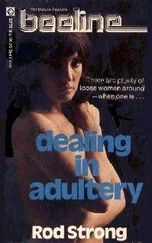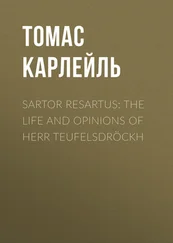Vladimir Nabokov - Strong opinions
Здесь есть возможность читать онлайн «Vladimir Nabokov - Strong opinions» весь текст электронной книги совершенно бесплатно (целиком полную версию без сокращений). В некоторых случаях можно слушать аудио, скачать через торрент в формате fb2 и присутствует краткое содержание. Город: New York, Год выпуска: 1990, Издательство: First Vintage International Edition, Жанр: Классическая проза, на английском языке. Описание произведения, (предисловие) а так же отзывы посетителей доступны на портале библиотеки ЛибКат.
- Название:Strong opinions
- Автор:
- Издательство:First Vintage International Edition
- Жанр:
- Год:1990
- Город:New York
- ISBN:нет данных
- Рейтинг книги:4 / 5. Голосов: 1
-
Избранное:Добавить в избранное
- Отзывы:
-
Ваша оценка:
- 80
- 1
- 2
- 3
- 4
- 5
Strong opinions: краткое содержание, описание и аннотация
Предлагаем к чтению аннотацию, описание, краткое содержание или предисловие (зависит от того, что написал сам автор книги «Strong opinions»). Если вы не нашли необходимую информацию о книге — напишите в комментариях, мы постараемся отыскать её.
Strong opinions — читать онлайн бесплатно полную книгу (весь текст) целиком
Ниже представлен текст книги, разбитый по страницам. Система сохранения места последней прочитанной страницы, позволяет с удобством читать онлайн бесплатно книгу «Strong opinions», без необходимости каждый раз заново искать на чём Вы остановились. Поставьте закладку, и сможете в любой момент перейти на страницу, на которой закончили чтение.
Интервал:
Закладка:
Mr, Appel, guest coeditor, writes about my two main works of fiction. His essay «Backgrounds of Lolita» is a superb example of the rare case where art and erudition meet in a shining ridge of specific information (the highest and to me most acceptable function of literary criticism). I would have liked to say more about his findings but modesty (a virtue that the average reviewer especially appreciates in authors) denies me that pleasure.
His other piece in this precious collection is «Ada Described». I planted three blunders, meant to ridicule mistranslations of Russian classics, in the first paragraph of my Ada: the opening sentence of Anna Karenin (no additional «a», printer, she was not a ballerina) is turned inside out; Anna Arkadievna's patronymic is given a grotesque masculine ending; and the title of Tolstoy's family chronicle has been botched by the invented Stoner or Lower (I must have received at least a dozen letters with clarifications and corrections from indignant or puzzled readers, some of them of Russian origin, who never read Ada beyond the first page). Furthermore, in the same important paragraph, «Mount Tabor» and «Pontius» allude respectively to the transfigurations and betrayals to which great texts are subjected by pretentious and ignorant versionists. The present statement is an amplification of Mr. Appel's remarks on the subject in his brilliant essay «Ada Described». I confess that his piece was a great pleasure to read, but one error in it I really must correct: My Baltic Baron is totally and emphatically unrelated to Mr. Norman Mailer, the writer.
SIMON KARLINSKY
Mr. Karlinsky's «N. and Chekhov» is a very remarkable essay, and I greatly appreciate being with A. P. in the same boat — on a Russian lake, at sunset, he fishing, I watching the hawk-moths above the water. Mr. Karlinsky has put his finger on a mysterious sensory cell. He is right, I do love Chekhov dearly. 1 fail, however, to rationalize my feeling for him: I can easily do so in regard to the greater artist, Tolstoy, with the flash of this or that unforgettable passage («. . . how sweetly she said: 'and even very much' « — Vronsky recalling Kitty's reply to some trivial question that we shall never know), but when 1 imagine Chekhov with the same detachment all I can make out is a medley of dreadful prosaisms, readymade epithets, repetitions, doctors, unconvincing vamps, and so forth; yet it is his works which I would take on a trip to another planet.
In another article — on «N.'s Russified Lewis Carroll» — the same critic is much too kind to my Anya in Wonderland (1924). How much better I could have done it fifteen years later! The only good bits are the poems and the wordplay. I find an odd blunder in the «Song of the Soup»: loban'{a. kind of bucket) is misspelt by me and twisted into the wrong gender. Incidentally, I had not (and still have not) seen any other Russian versions of the book (as Mr. Karlinsky suggests I may have had) so that my sharing with Poliksena Solovyov the same model for one of the parodies is a coincidence. I recall with pleasure that one of the accidents that prompted Wellesley College to engage me as lecturer in the early forties was the presence of my rare Anya in the Wellesley collection of Lewis Carroll editions.
ROBERT ALTER
Mr. Alter's essay on the «Art of Politics in Invitation to a Beheading»1 is a most brilliant reflection of that book in a reader's mind. It is practically flawless so that all I can add is that I particularly appreciated his citing a passage from The Gift «that could serve as a useful gloss on the entire nature of political and social reality in the earlier novel».
STANLEY EDGAR HYMAN
Mr. Hyman in his first-rate piece «The Handle» discusses Invitation to a Beheading and Bend Sinister, the two bookends of grotesque design between which my other volumes tightly huddle. I am a great admirer of Ransom's poem about Captain Carpenter aptly mentioned by Mr. Hyman.
DABNEY STUART
I must point out two fascinating little mistakes in Mr. Stuart's very interesting «Laughter in the Dark: Dimensions of Parody»: (1) The film in which my heroine is given a small part in the 1920s has nothing to do with Garbo's Anna Karenina (of which incidentally I have only seen stills); but what I would like my readers to brood over is my singular power of prophecy, for the name of the leading lady (Dorianna Karenina) in the picture invented by me in 1928 prefigured that of the actress (Anna Karina) who was to play Margot forty years later in the film Laughter in the Dark; and (2) Mr. Stuart cleverly toys with the idea that Albert Albinus and Axel Rex are «doubles», one of his main clues being that Margot finds Albinus' telephone number not under «A» but under «R» in the directory. Actually that «R» is a mere slip or typo (the initial corresponds correctly to the man's name in the first English-language edition of the novel, London, 1936).
GEORGE STEINER
Mr. Steiner's article («Extraterritorial») is built on solid abstractions and opaque generalizations. A few specific items can be made out and should be corrected. He absurdly overestimates Oscar Wilde's mastery of French. It is human but a little cheap on his part to chide my Van Veen for sneering at my Lolita (which, in a transfigured form, I magnanimously turned over to a transposed fellow author); it might be wiser for him to read Ada more carefully than did the morons whom he rightly condemns for having dismissed as hermetic a writer's limpid and precise prose. To one piece of misinformation I must strongly object: I never belonged to the «haute bourgeoisie» to which he grimly assigns me (rather like that Marxist reviewer of my Speak, Memory who classified my father as a «plutocrat» and a «man of affairs»!). The Nabokovs have been soldiers and squires since (at least) the fifteenth century.
BARBARA HELDT MONTER
In her otherwise impeccable little piece «Spring in Fialta: The Choice that Mimics Chance « Mrs. Barbara Monter makes a slight bibliographic mistake. She implies that I wrote the Russian original of the story sometime around 1947, in America. This is not so. It was written at least a dozen years earlier, in Berlin, and was first published in Paris («Vesna v Fial'te», Sovremennyya Zapiski, 1936) long before being collected in the Chekhov House edition, New York, 1956. The English translation (by Peter Pertzov and me) appeared in Harper's Bazaar, May, 1947.
JEFFREY LEONARD
I am not sure that Mr. Leonard has quite understood what Van Veen means by his «texture of time» in the penultimate part of Ada. First of all, whatever I may have said in an old interview, it is not the entire novel but only that one part (as Alfred Appel correctly points out elsewhere) in which the illustrative metaphors, all built around one viatic theme, gradually accumulate, come to life, and form a story turning on Van's ride from the Grisons to the Valais — after which the thing again disintegrates and reverts to abstraction on a last night of solitude in a hotel in Vaud. In other words, it is all a structural trick: Van's theory of time has no existence beyond the fabric of one part of the novel Ada. In the second place, Mr. Leonard has evidently not grasped what is meant by «texture»; it is something quite different from what Proust called «lost lime», and it is precisely in everyday life, in the waiting-rooms of life's stations that we can concentrate on the «feeling» of time and palpate its very texture. I also protest against his dragging «Antiterra», which is merely an ornamental incident, :nto a discussion whose only rightful field is Part Four r id not the entire novel. And finally 1 owe no debt whatsoever (as Mr. Leonard seems to think) to the famous Argentine essayist and his rather confused compilation «A New Refutation of Time». Mr. Leonard would have lost less of it had he gone straight to Berkeley and Bergson.
Читать дальшеИнтервал:
Закладка:
Похожие книги на «Strong opinions»
Представляем Вашему вниманию похожие книги на «Strong opinions» списком для выбора. Мы отобрали схожую по названию и смыслу литературу в надежде предоставить читателям больше вариантов отыскать новые, интересные, ещё непрочитанные произведения.
Обсуждение, отзывы о книге «Strong opinions» и просто собственные мнения читателей. Оставьте ваши комментарии, напишите, что Вы думаете о произведении, его смысле или главных героях. Укажите что конкретно понравилось, а что нет, и почему Вы так считаете.










